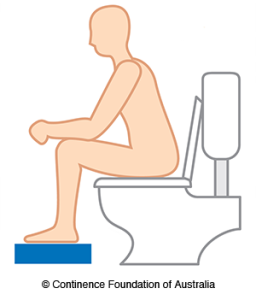Incontinence is not just a woman’s or elderly person’s issue.
Did you know –
- Incontinence affects over 5 million Australians with 1 in 4 people (aged 15 or over) experiencing bladder or bowel incontinence
- 80% of people who experience urinary incontinence are women
- Over 1.34 million Australian boys and men experience incontinence
- 46% of people who experience incontinence are under the age of 50 years
- One in three women who have ever had a baby experience urinary incontinence
The good news is however, in many cases incontinence can be prevented, better managed or even cured, and seeking help from a professional is a great start!
Pelvic Health Physiotherapy
Seeing your Pelvic Health Physiotherapist is a great idea as they can help with initial advice, through to on-going care of the condition.
A Pelvic Health Physiotherapist is trained specifically in all pelvic conditions and incontinence and can help with the following –
- Incontinence
- Overactive bladder
- Prolapse Management
- Pessary fittings
- Pro/post gynaecological surgery advice and management
- Bowel dysfunction including constipation and obstructed defecation
- Pelvic pain including Painful Bladder Syndrome, Interstitial Cystitis and Endometriosis
- Female sexual dysfunction (including Dyspareunia and Vaginismus)
- Pre and postnatal needs
- Pregnancy related back pain
- Rectus diastasis management
5 Simple ways to Help Prevent Incontinence
In many cases urinary and faecal incontinence can be prevented through simple actions you can take to improve your diet and lifestyle.
Here are 5 healthy habits for your bladder and bowel that can help –
- Stay Active – Aim for a minimum 30 minutes of physical activity per day to improve your overall health and in turn, your bladder and bowel function. This can include activities like gardening, walking, cleaning or playing with grandkids.
- Do Pelvic Floor Exercises – Often conditions like obesity, pregnancy, childbirth, regular lifting or chronic cough, can weaken your pelvic floor. Having a strong pelvic floor is imperative to avoid incontinence. Try to do your exercises 3 times per day and see your continence health professional for further training on exercises.
- Eat Well – Eating plenty of fibre will help avoid constipation and improve bowel function by absorbing water and adding bulk to your bowel motions. This includes adding foods to your diet like multigrain or whole grain breads, cereal products, fruits and vegetables, legumes, nuts and seeds. Aim for at least 2 serves of fruit, 5 of vegetables and 5 of cereal/breads.
- Drink More – Drink more water/fluids regularly throughout the day to help you stay hydrated and maintain digestive health. Water is best! Caffeine, cola or alcohol can irritate your bladder. Never restrict your water intake if having bladder control issues, as this will only make the problem worse.
- Improve Toilet Habits – Good toilet habits are so important for our bowel and bladder health. Only go to the toilet when you have the urge – not ‘just in case’. Avoid constipation as regularly straining your bowels will stretch and weaken the pelvic floor over time. Visit your doctor as soon as possible if you suspect a urinary tract infection. When using the toilet for a bowel movement, ensure you sit in the correct position, with elbows on knees, lean forward slightly and rest feet on a footstool if needed. This helps you relax the pelvic floor and sphincter muscles. Bulge out your tummy and relax your anus , breath normally and let go. When finished, firmly draw up your anus again.

Watch Toilet Habits Webinar
World Continence Week
World Continence week runs from 19 to 25th June and during this time we like to highlight all the positive help that is out there available to the public. We encourage those suffering to get help that will empower them to live more confident, happy lives.
Also sharing their experiences can help their community be more aware and it may help in gaining greater investment into incontinence support and management.
For help, please visit the Continence Foundation website, or call the National Continence Helpline on 1800330066 and speak with a Nurse Continence Specialist (Mon-Fri 8am-8pm AEST).

Pelvic Health Physiotherapists at SPHC
If you know of someone suffering that may need assistance, we have Pelvic Health Physios trained to manage or even cure incontinence. Call for more information or to book on 38691099, or read more below.

